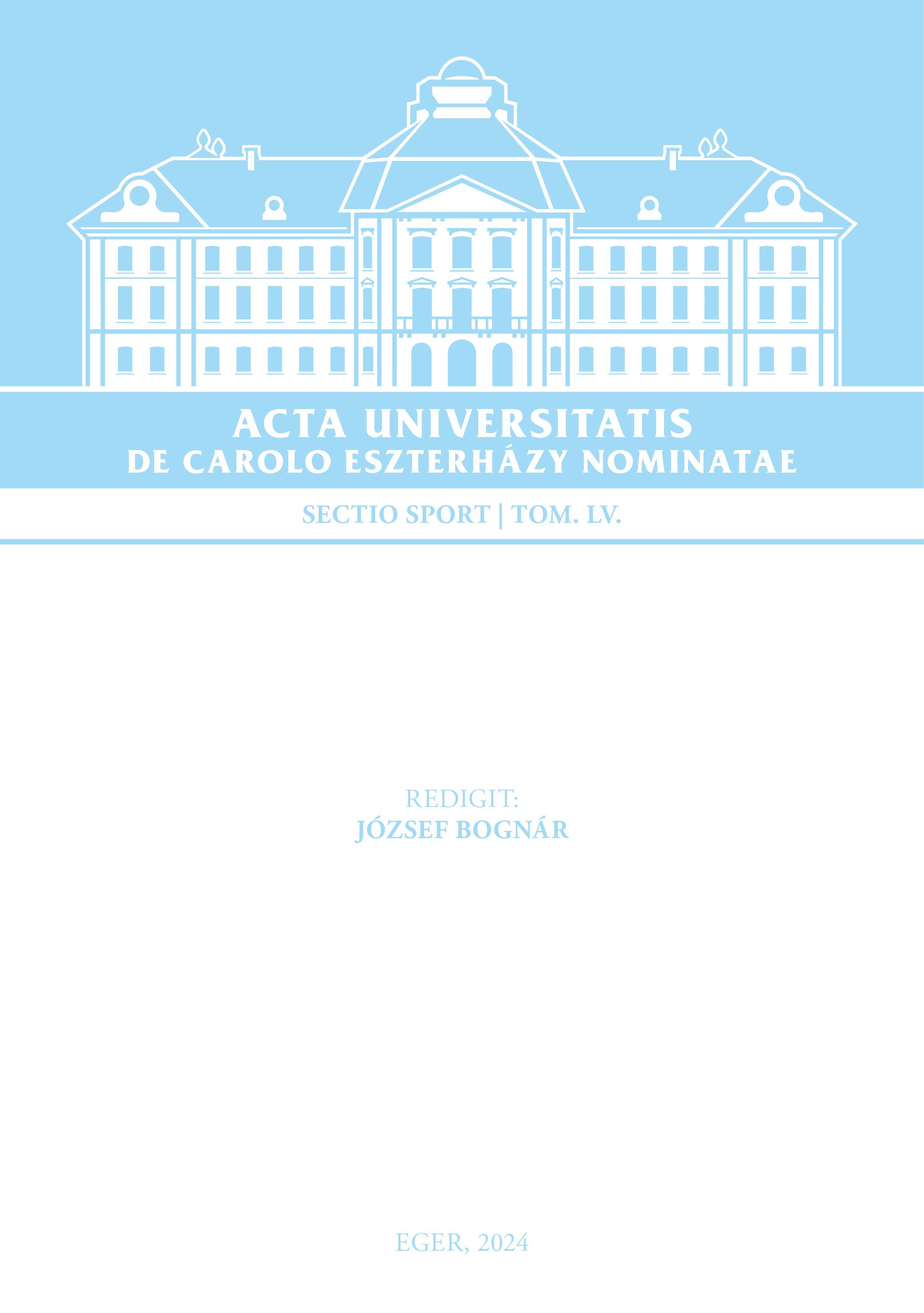A külső környezeti tényezők szerepe a sporttehetség-gondozás folyamatában
DOI:
https://doi.org/10.33040/ActaUnivEszterhazySport.2025.55.75Kulcsszavak:
környezeti hatások, személyi és szervezeti tényezők, sporttehetségAbsztrakt
A sporttehetség-gondozás folyamatában a környezeti tényezők szerepe a sportolók fejlődé sében kiemelt jelentőséggel bír. Jelen tanulmány a sporttehetség-gondozás területén alkal mazott nemzetközi és magyar szakirodalmi kutatásokat elemzi, különös figyelmet fordítva az ATDE- és ESF-modellek alkalmazására. A kutatás célja a környezeti tényezők hatásainak feltérképezése, valamint a sportolók sikerességét elősegítő faktorok összefüggéseinek vizs gálata. A szakirodalmi áttekintés alapján a sportkörnyezetek sikerességét számos tényező, így a támogató edzői közeg, a család, az iskolai és szociális háttér, valamint a hosszú távú fejlesztési megközelítések határozzák meg. Az eredmények rávilágítanak arra, hogy a sikeres sporttehetség-gondozás szoros összhangot igényel a mikrokörnyezeti és makrokörnyezeti tényezők között. A magyar és nemzetközi kutatások közötti összehasonlítás hangsúlyozza az edzők kulcsszerepét, ugyanakkor felhívja a figyelmet a személyes kapcsolatok és a hosszú távú felkészítés fontosságára a sportolók sikeres fejlődése érdekében. A kutatás eredményei hasznos alapot adnak a jövőbeli tehetséggondozási stratégiák kialakításához, valamint új kutatási irányokat jelölnek meg a hazai sporttehetség-gondozás számára. A szervezeti kul túra, a hosszú távú, diverzifikált fejlesztés fókusza és a szélesebb környezet támogatása azok a tényezők, amelyek jelentős hatással vannak a szervezet sikerességére és az eredményes tehetséggondozásra. A különböző tényezők figyelembevétele elengedhetetlen a sportszervezet filozófiájának és mindennapi működésének kialakítása során. Az ATDE- és ESF-modellek alkalmazása sok lehetőséget rejt a magyar sporttehetség-gondozást érintő vizsgálatok számára.

